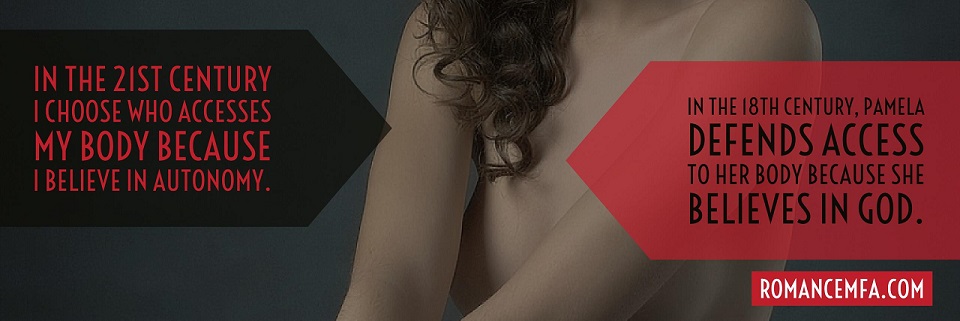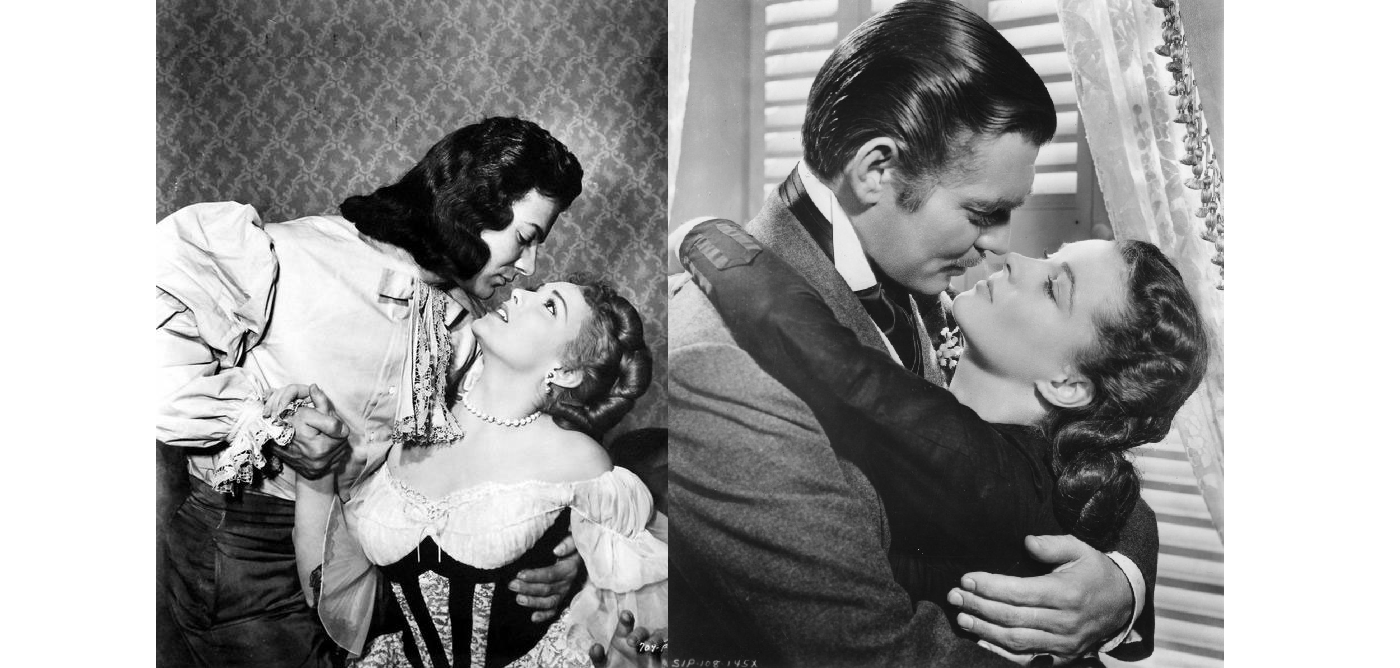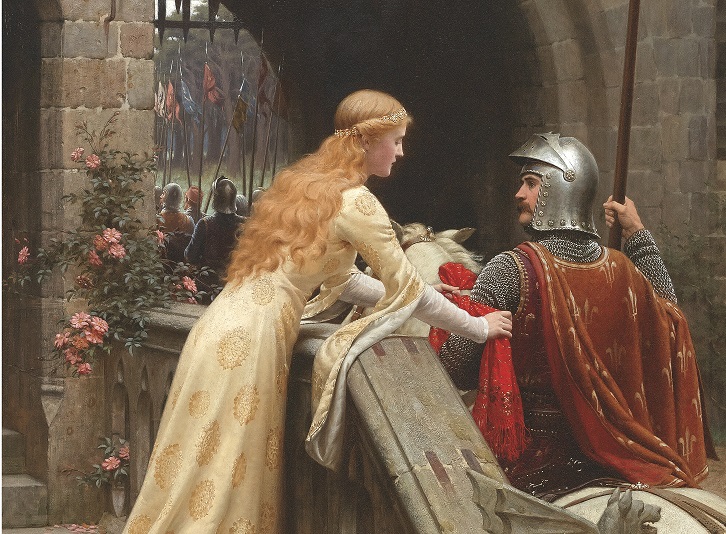The more I think about Pamela, the less I feel I can identify with any characters across the gulf of time. I really don’t like Mr B, but I don’t like Pamela either. She’s not just a Mary Sue (so beautiful! beloved by all! excellent at needlework and playing the spinnet!), she’s a Pollyanna, too.
I don’t like Pamela
What bothers me most about Pamela is, I think, the insistence on her virtue. It does not jibe well with 21st century thought. For her, the resistance to her master’s advances (that whole sexual harrassment thing) is all about avoiding premarital sex and thus preserving her immortal soul. Over and over she speaks of her devotion to a higher power, as well as her filial devotion.
And that’s right where Richardson loses me.
In the 21st century I have the right to choose what happens with my body, and you do not have a right to touch my body without my permission. It doesn’t have to do with Christian morality, it has to do with human rights.
In the 18th century, Pamela does not have the right to her own body. Mr B is The Master and he has an inescapable amount of control over her. Even though her parents tell her from the beginning to run home, she doesn’t seem able to leave until she has some permission from the master. Similarly, although the other servants in the household may see what is going on, they don’t have any power to stand up to him either: he has all the rights and they have practically none.
But there is one power above the master: God. God has the rights to Pamela’s immortal soul, along with everything else on the metaphysical plane. Hence the basis of Pamela’s virtue-preservation resistance to the master’s sexual harassment, and also why I, 21st century advocate of women’s rights, science, and secular society, rolled my eyes every time Pamela started in on her Christian virtue.
She is so stubbornly subservient that at some point it made me think about the story of Eudocia, as told in the Atlantic article My Family’s Slave. While Pamela does have occasional glimmers of independent spirit and self-worth–
“Whatever you have to propose, whatever you intend by me, let my assent be that of a free person, mean as I am, and not of a sordid slave, who is to be threatened and frightened into a compliance with measures, which your conduct to her seems to imply would be otherwise abhorred by her.”
–on the whole she’s not interested in saving herself for her self, but for her immortal soul. On the earthly plane, she’s setting up to be a fairly passive slave to her husband. Richardson makes it pretty clear that her role as a virtuous woman is to submit first to God, second to a man. Throughout the first book she writes to her father for advice; after marriage she is transferred to Mr B’s dominion and he becomes the source of all wisdom. (More on Mr B’s advice next time!)
There are a lot of places where Pamela-as-shining-example-of-feminine-virtue made me want to throw my e-reader across the room. No matter what is said to her, she reflects it back as a compliment to the other person. Lines like “And if I can, by the most cheerful duty, and resigned obedience, have the pleasure to be agreeable to you, I shall think myself but too happy.” Or, when Mr B warns her that society won’t accept her but she plans to keep herself busy by:
- Taking care of the household,
- visiting the poor,
- conversing with her husband (when he favors her with his presence),
- reading edifying things to make her a better conversationalist,
- and praying, of course.
This was about the point when I was idly wishing she’d succeeded in drowning herself. What is she going to do for her own self-fulfillment? Everything mentioned is designed to make her a better helpmeet to her husband.
There is no place in Pamela’s story for the physical pleasure and personal fulfillment that are so important to the romances written now.
Writing to her parents on her wedding night, Pamela shares that she is “committing myself to the mercies of the Almighty, who has led me through so many strange scenes of terror and affrightment, to this happy, yet awful moment.” Fortunately she’s already been prepped by Mr B at dinner: “he made me drink two glasses of champaign, and, afterwards, a glass of sack.” There is no suggestion anywhere that she’s ever received the slightest bit of sex ed. She’s just going to lie back and think of England. Or Jesus. Or something.
Should a modern reader make it to the final chapters of Pamela’s story they will find discussions with Mr B’s sister Lady Davers, as well as Mr B’s thoughts about ladies such as his sister.
“The gentleman has never been controlled: the lady has never been contradicted. He cannot bear it from one whose new relation, he thinks, should oblige her to shew a quite contrary conduct. She thinks it very barbarous, now, for the first time, to be opposed in her will, and that by a man from whom she expected nothing but tenderness. So great is the difference between what they both expect from one another, and what they both find in each other, that no wonder misunderstandings happen; that these ripen to quarrels; that acts of unkindness pass, which, even had the first motive to their union been affection, as usually it is not, would have effaced all manner of tender impressions on both sides.”
To me that sounds like a good starting point for a love story and I think many more recently written romance novels do start with characters like that. Where Richardson departs from my thoughts about how a workable relationship might develop with his assumption that marriage can only work if the woman compromises everything to the man.
The sole compromise that Pamela wins is the wedding ring on her finger. Once marriage has transferred her from chattel of her father to chattel of her husband, Mr. B makes very clear that he will be making no further compromises because he is an entitled sack of shit, even after they’re married. And while that might be a Happy Ever After for Pamela, it doesn’t even add up to a Happy For Now to me.



